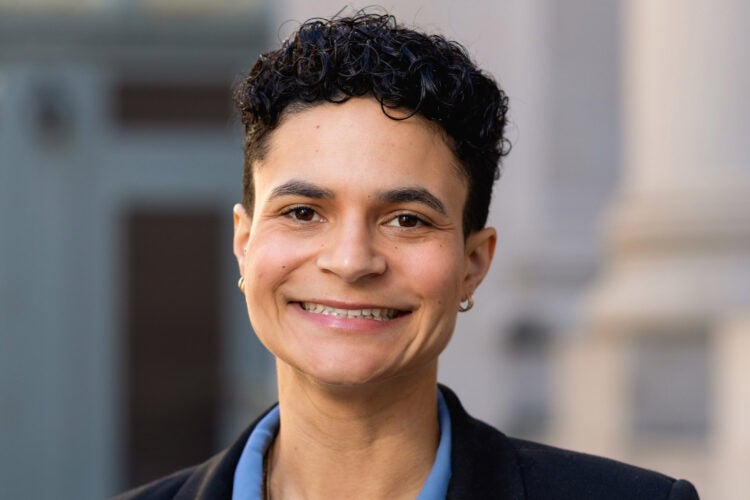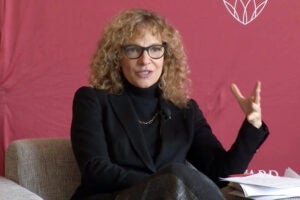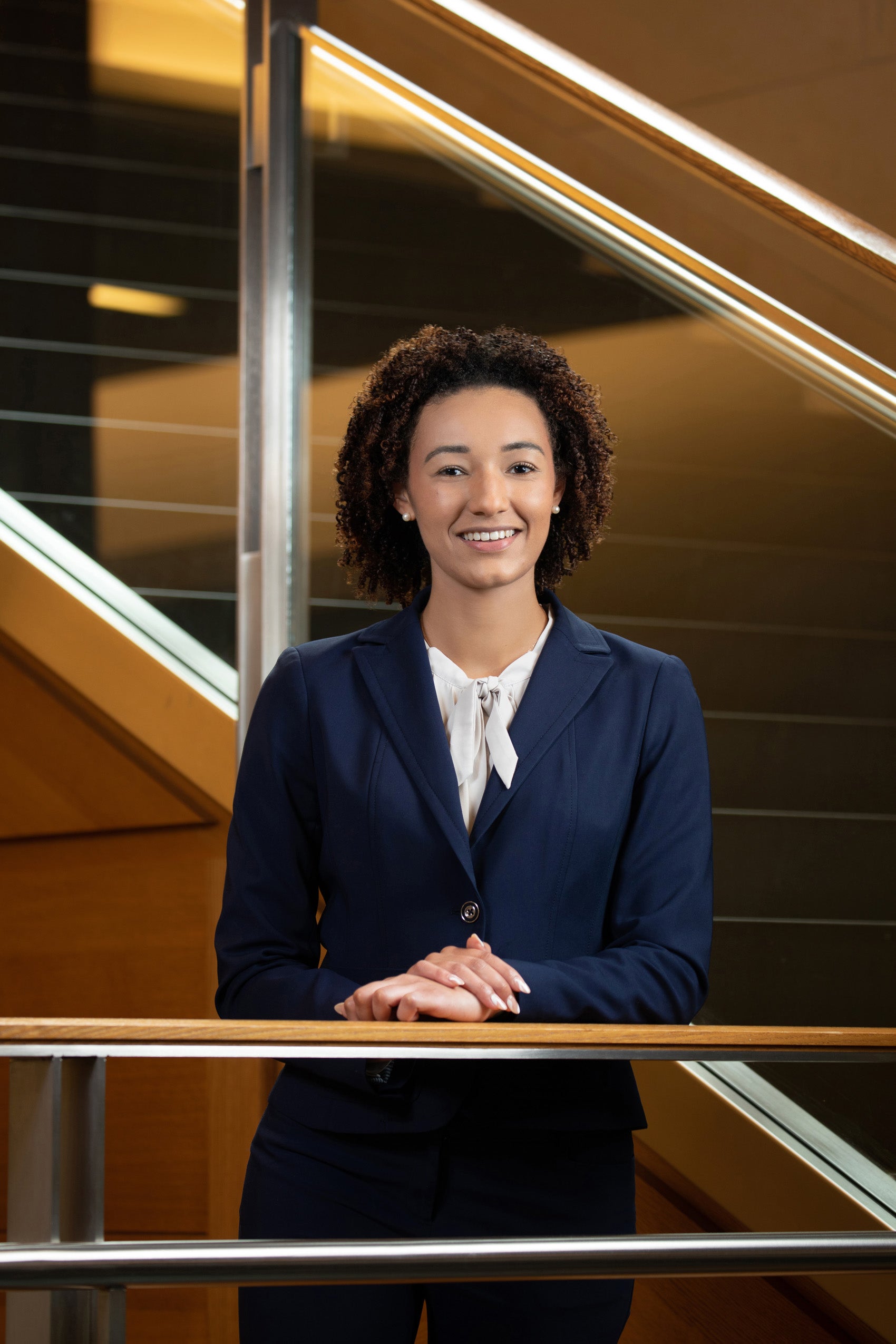People
Diane Rosenfeld
-
‘Make your world and the world of all your sisters better’
March 27, 2023
Diane Rosenfeld presents a model from the animal world that she says would empower and protect women.
-
WA lawmaker wants stronger domestic violence protections
February 22, 2023
What one expert called the first bill of its kind on domestic violence cleared a major hurdle last week, passing out of committee in the…
-
Diane Rosenfeld: When we treat domestic violence as a private affair, we are culpable in perpetuating it
December 15, 2022
An op-ed by Diane Rosenfeld: Buffalo Grove village spokesperson Molly Gillespie announced at a news conference that there was no threat to the public from…
-
What Our Primate Ancestors Can Teach Us About Dismantling the Patriarchy: The Ms. Q&A with Diane Rosenfeld
October 26, 2022
Women’s organized resistance to male dominance continues to make headlines around the world, from young women leading an uprising against the restrictive policies of the theocratic regime…
-
Patriarchy Is Monkey Business—Just Ask the Bonobos Species
September 20, 2022
Unlike many primates, bonobos—a species of apes that are native to the Congo Basin region in Central Africa—are a matriarchal bunch who protect each other…
-
Brianna Banks named winner of Stuntz Memorial Award
May 20, 2022
This year, Brianna Banks was named the 2022 winner of the William J. Stuntz Memorial Award for Justice, Human Dignity, and Compassion, which recognizes a graduating student who has demonstrated an exemplary commitment to the principles of justice, human dignity, and compassion while at Harvard Law School.
-
Reading the law
November 10, 2021
Harvard Law School’s upper-level reading groups give students the opportunity to dig into unique subjects connected directly — or not — to the law.
-
Chrystul Kizer, sex trafficking victim accused of killing alleged abuser, wins appeal in Wisconsin
June 4, 2021
An appellate court in Wisconsin has ruled that Chrystul Kizer, a child sex-trafficking victim charged with killing her alleged abuser, may be able to use a state law intended to help trafficking victims accused of crimes. The law, known as the affirmative defense, will give Kizer, now 20, a chance to present evidence to a Kenosha judge, and possibly a jury, that her actions were a “direct result” of the trafficking she experienced. If successful, she could be acquitted of some or all of the charges against her, rather than face a mandatory life sentence — and could break legal ground for trafficking victims accused of crimes. ... “We could not have gotten a better decision‚” said Diane Rosenfeld, director of Harvard Law School’s gender violence program, which was involved in writing a brief in the case. “If the state had taken more seriously what Volar was doing, not only to Chrystul but to all these other girls, arguably Chrystul wouldn’t have been in this position."
-
Virginia Lieutenant Governor Faces Eroding Support From Democrats After New Accuser Speaks
February 11, 2019
A second woman came forward Friday with claims that she had been sexually assaulted by Lt. Gov. Justin E. Fairfax of Virginia, intensifying the weeklong political crisis in the state and leading top fellow Democrats to call for Mr. Fairfax to resign. ... “Everything she said in her statement was exactly what she told me when we talked,” said Diane L. Rosenfeld, a founding director of the Gender Violence Program at Harvard Law School, who said Dr. Tyson told her of the alleged assault in December 2017.
-
On Campus Radio: Drawing New Rules For Title IX
January 29, 2019
Education Secretary Betsy DeVos has already rescinded Obama-era guidelines for how schools handle sexual harassment and assault claims. Now, she is hoping to give what she calls fair protections to the accused. Advocates for survivors see this as a big step backward and they are making their voices heard. The deadline for public comment has been extended to Wednesday, Jan. 30. On the latest episode of On Campus Radio, we'll look into DeVos' proposed changes and how students and educators are responding to them. ... We'll then talk to Harvard law professors Janet Halley and Diane Rosenfeld about the debate over Title IX regulations.
-
The Department of Education released proposed regulations Friday meant to reshape how colleges handle allegations of sexual misconduct — Harvard among them. The long-anticipated proposal — which was announced alongside a statement by United States Education Secretary Betsy DeVos — provides a new framework for implementing Title IX, an anti-sex discrimination law that guides universities’ approach to handling sexual assault...Law School Professor Diane L. Rosenfeld, who teaches a course on Title IX, said the new guidance is “an attempt to make [schools] not responsible for off-campus” sexual assault and harassment...Law School professor Janet E. Halley said she plans to write a formal comment to the Department advocating for policies similar to the ones currently in place at Harvard Law School, which mandate a different hearing process than the one the government has put forth. She said she thinks the new proposal contains both necessary improvements and “disastrous” flaws. “A lot of my issues are my concern for the accused, but a lot of my issues are my concern for the complainant,” she said. “There’s good things and bad things for both sides here, so the public furor is pretty idiotic.”
-
Harvard may be required to change its current Title IX policy to comply with new federal dictates if the U.S. Department of Education publishes a new set of guidelines under consideration, experts say...Harvard Law School Professor Diane L. Rosenfeld, who teaches a course on Title IX, speculated that the leaked draft guidelines “could likely change” from their current iteration, after the required notice-and-comment period. That portion of the regulatory process allows the public to provide feedback on changes to rules executive agencies propose. “Many of the things that are in the policy are legally very problematic,” Rosenfeld said. “They seek to import private law standards and criminal justice standards into a civil rights context for school adjudication under Title IX. And they’re just simply not the same legal and regulatory system, so the same rules don’t apply.”
-
Does the law hear women?
October 1, 2018
An op-ed by Diane Rosenfeld. Does the law hear women? This week's dramatic -- and traumatic -- Senate hearing on Judge Brett Kavanaugh's nomination to the Supreme Court demonstrated that society and its leaders silence women, either with a hand over their mouth or by simply not listening to them. The details of the hearing illustrate how badly broken the system is in addressing sexual assault claims.
-
Balance between protecting alleged victims and the accused
September 27, 2018
As our community follows developments related to two high-profile men facing accusations of improper conduct with women, KARE 11 sat down with a national expert on sexual assault. Dr. Diane Rosenfeld is the Director of the Gender Violence Program and a lecturer at Harvard Law School. On Wednesday, she offered several insights on the impending hearing involving Judge Brett Kavanaugh and the ongoing reactions to allegations against Rep. Keith Ellison of Minnesota. “We shouldn’t rush to judgment, but we should have some kind of fair process that does not retraumatize someone who comes forward with allegations that are so painful and that reveal such painful and traumatizing incidents,” Rosenfeld said.
-
A Look At Campus Sexual Assault In The DeVos Era (audio)
March 7, 2018
An interview with Diane Rosenfeld. College campuses continue to be unsafe for women. Its estimated that one in five female students will be sexually assaulted during her time in college. It’s a disturbingly common problem, yet so few of the accused perpetrators end up facing criminal charges. A former Yale student is currently standing trial for the alleged rape of one of his classmates. It could be one of the few times a campus rape case is decided in court. Why do so few accused perpetrators end up facing criminal charges?
-
Women’s Week Panel Talks Harvard’s Past with Sexual Violence
February 28, 2018
Panelists shared personal stories, advice, and a range of historical experiences related to sexual violence at Harvard at an event Tuesday afternoon co-hosted by Our Harvard Can Do Better and the Radcliffe Union of Students...[Diane] Rosenfeld offered advice on activism for current students, encouraging them to demand an audience with the administration, especially with University President-elect Lawrence S. Bacow. “There is absolutely power in numbers. Gather your student groups and have meetings and meetings and meetings with the new President, even before he takes office. Let me him know that you need to be on his radar,” Rosenfeld said.
-
Professors, Legal Experts Call for Nuance in #MeToo Debate
February 7, 2018
Students, professors, and legal experts discussed the direction the nation should take following the national spotlight on the #MeToo movement at a Tuesday evening panel...Panelists included Law School Professor Diane Rosenfeld, Massachusetts Legislative Aide Preyel Patel, University of Massachusetts-Boston Professor J. Shoshanna Ehrlich, and Know Your IX Policy and Advocacy Coordinator Sejal Singh [`20]...A central theme in the panelists’ responses was the call for intersectionality within the movement, and advocacy for marginalized groups. “I can’t speak for a trans woman, but I can hold a space for her,” Rosenfeld said. Panelists also called for individuals to not shy away from difficult conversations with their peers.
-
The world may have turned its attention to rampant sexual harassment and assault in 2017, but activists on college campuses have waged this battle for decades. Their work has not only foretold today’s Me Too movement but has also laid the foundation for cultural changes necessary to curb workplace harassment. Harvard-trained lawyer Diane Rosenfeld is at the heart of this movement. Her work focuses on a single question: How do we create a culture of sexual respect on, and beyond, college campuses?...In an interview with Quartz, Rosenfeld spoke about strong female alliances, how teaching breathed new life into her career, and the wonders of “smooth aggressiveness.”





